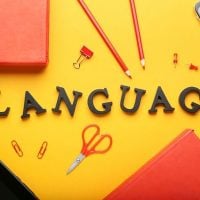Deadline: 15-Oct-20
The European Union has announced a call for proposals for the Civil Society Organizations as Actors of Governance and Development Work in the Field.
The global objective of this call for proposals is enhancing Chinese CSO’s capacities to contribute to the governance and development process in China through capacity building, networking, advocacy, and research.
Funding Information
The overall indicative amount made available under this call for proposals is Ela 1,700,000. The contracting authority reserves the right not to award all available funds.
Size of grants Any grant requested under this call for proposals must fall between the following minimum and maximum amounts:
- minimum amount. EUR 800,000.00
- maximum amount: EUR 850,000.00
Objectives
The specific objectives of this call for proposals are:
- To increase NGO capacities to strengthen women’s participation in decision-making, and gender equality mainstreaming.
- To increase NGO capacities to empower People with Disabilities and to better integrate them into society. To protect and empower other vulnerable groups (migrant women, left-behind children, and elderly, youth at risk…).
- To increase the participation of CSOs in tackling climate change and mitigating its adverse effects.
The priorities of this call for proposals are:
For Specific Objective 1 To increase NGO capacities to strengthen women’s participation in decision-making by:
- promoting policy dialogue on gender equality, human and women’s rights;
- promoting women and girls’ role as agents of development and change, for instance;
- promoting their economic and social rights and empowerment;
- strengthening their voice and participation in social, economic, political and civic life;
- ensuring their physical and psychological integrity;
- promoting women’s equal access to – and control over — resources, productive employment, decent work, equal pay and financial services;
- involving men and boys’ associations, women’s organizations, youth organizations, and media in the transformative process of engendering social change, in particular by challenging stereotypes;
- deepening multi-stakeholder partnerships, i.e. including “non-usual” stakeholders in processes: trade unions, media, financial actors, etc.;
- advocating for gender-sensitive policymaking, alignment, and respect of international frameworks on human rights and gender equality.
For Specific Objective 2 To increase NGO capacities to empower People with disabilities and to better integrate them in society, and protect and empower other vulnerable groups by:
- Promoting policy dialogue on issues, policies, and programs affecting people with disabilities and other vulnerable groups;
- Strengthening CSOs focusing on people with disability, and other vulnerable groups, to deliver social services and promote social policy dialogue in partnership with local authorities;
- Monitoring, advocating for and piloting more effective and inclusive social-economic policies for people with disabilities, and other vulnerable groups;
- Supporting the adoption of international norms and standards concerning people with disabilities.
For Specific Objective 3 – To increase the participation of CSOs in taclding dirnate change and mitigating its adverse effects by:
- promoting CSO capacities to raise awareness and advocate on climate change and environmental protection issues;
- enabling the transition to a climate-resilient, low-emissions, circular economy through i.a. resource efficiency and sustainable consumption and production, etc.;
- helping to build capacity to mainstream climate change, disaster risk reduction and environmental sustainability and the pursuit of green growth into national and local development strategies;
- Making better use of science, technology, and innovation to promote climate action and environmental sustainability.
The following actions will be considered as containing specific added value elements:
- Actions including an innovative approach to capacity building activities for Chinese CSOs;
- Actions implemented at both central and local level;
- Actions including a sound scale-up and replication strategy;
- Actions promoting the participation of CSOs in the design and implementation of social policies;
- Actions establishing sustainable partnerships among Chinese CSOs and State Actors;
- Actions involving trilateral cooperation between Europe, China, and a third country.
- Actions mainstreaming gender equality: Following the adoption in 2014 of the Tool-box “A Rights-Based Approach, encompassing all human rights, for EU development cooperation” and the subsequent adoption in 2014 of the related Council Conclusions, the European Commission committed to moving towards a Rights-Based Approach (RBA) for development cooperation.
Eligibility Criteria
Lead applicant(s)
In order to be eligible for a grant, the lead applicant must:
- be a legal person and
- be non-profit-making and
- be Civil Society Organisations and
- be established in the People’s Republic of China or a Member State of the European Union, or a Member State of EEA countries, and
- be directly responsible for the preparation and management of the action with the co-applicant(s) and affiliated entity(ies), not acting as an intermediary.
Co-applicant(s)
At least two co-applicants are requested.
- In order to guarantee meaningful engagement with co-applicants, the lead applicant must demonstrate, by the latest at the stage of Full Application (in the Description of the Action and in the Budget of the Action):
- What are the mandates and roles of the respective co-applicants in the Action? What activities will be expected to be implemented by the respective co-applicants; and
- What is the indicative budget the co-applicants will receive from the total eligible costs of the action?
- All proposals should (at the latest in the Full Application stage) demonstrate that at least 50% of the total eligible costs of the action are allocated to the co-applicants and the Financial Support to Third Parties.
- Co-applicants participate in designing and implementing the action, and the costs they incur are eligible in the same way as those incurred by the lead applicant.
- Co-applicants must satisfy the eligibility criteria as applicable to the lead applicant himself.
- Co-applicants must sign the mandate form.
- If awarded the grant contract, the co-applicant(s) (if any) will become beneficiary(ies) in the action (together with the coordinator).
Affiliated entities
- The lead applicant and its co-applicant(s) may act with an affiliated entity(ies).
- Only the following entities may be considered as affiliated entities to the lead applicant and/or to co-applicant(s):
- Only entities having a structural link with the applicants (i.e. the lead applicant or a co-applicant), in particular a legal or capital link.
- This structural link encompasses mainly two notions:
- Control, as defined in Directive 2013/34/EU on the annual financial statements, consolidated financial statements, and related reports of certain types of undertakings:
- Entities affiliated to an applicant may hence be:
- Entities directly or indirectly controlled by the applicant (daughter companies or first-tier subsidiaries). They may also be entities controlled by an entity controlled by the applicant (granddaughter companies or second-tier subsidiaries) and the same applies to further tiers of control;
- Entities directly or indirectly controlling the applicant (parent companies). Likewise, they may be entities controlling an entity controlling the applicant;
- Entities under the same direct or indirect control as the applicant (sister companies).
- Entities affiliated to an applicant may hence be:
- Membership, i.e. the applicant is legally defined as an e.g. network, federation, association in which the proposed affiliated entities also participate or the applicant participates in the same entity (e.g. network, federation, association,…) as the proposed affiliated entities.
- Control, as defined in Directive 2013/34/EU on the annual financial statements, consolidated financial statements, and related reports of certain types of undertakings:
For more information, visit https://bit.ly/3hF1zzW









































